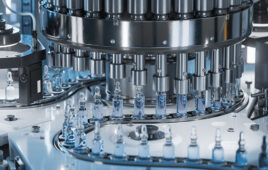
Image from www.edmarkey.com
Senator Edward J. Markey (D-Mass.) has sent a letter to the National Institute of Allergy and Infectious Disease (NIAID) asking for a status update regarding ongoing research to develop a universal COVID-19 vaccine.
NIAID had awarded $36.3 million to academic institutions to working on coronavirus vaccines that potentially protect against multiple types of coronaviruses.
Coronavirus outbreaks have resulted in three outbreaks in the past two decades. First, there was severe acute respiratory syndrome (SARS) from 2002 to 2004. Then, Middle East respiratory syndrome (MERS) appeared in 2012 and SARS-CoV-2 seven years later.
“Had a universal coronavirus vaccine existed at the onset of the pandemic, hundreds of thousands of American lives could have been saved,” wrote Senator Markey in a press release. “And we remain at risk of variants that have the potential to defeat the immunity provided by existing vaccines. A vaccine that targets coronaviruses as a class would likely be less susceptible to these variants.”
Markey had contacted NIAID leader Dr. Anthony Fauci about a universal coronavirus vaccine on February 3, 2020.
In the most recent letter, Markey asked Fauci to detail scientific and resource challenges tied to developing a universal coronavirus vaccine and ways Congress could support those efforts. He also asked for an estimate of how long it may take to develop a universal coronavirus vaccine or therapy.
In October, NEJM published an article finding that individuals previously infected with severe acute respiratory syndrome coronavirus 1 (SARS-CoV-1) infection had potent antibodies after immunization with the Pfizer-BioNTech BNT162b2 vaccine. The antibodies were capable of neutralizing known variants of concern as well as sarbecoviruses found in bats and pangolins that also pose a threat of human infection. “These findings show the feasibility of a pan-sarbecovirus vaccine strategy,” the researchers concluded.
In March of this year, the Coalition for Epidemic Preparedness Innovations (CEPI) announced it would allocate up to $200 million to develop broadly protective coronavirus vaccines.
Filed Under: Drug Discovery and Development, Infectious Disease



